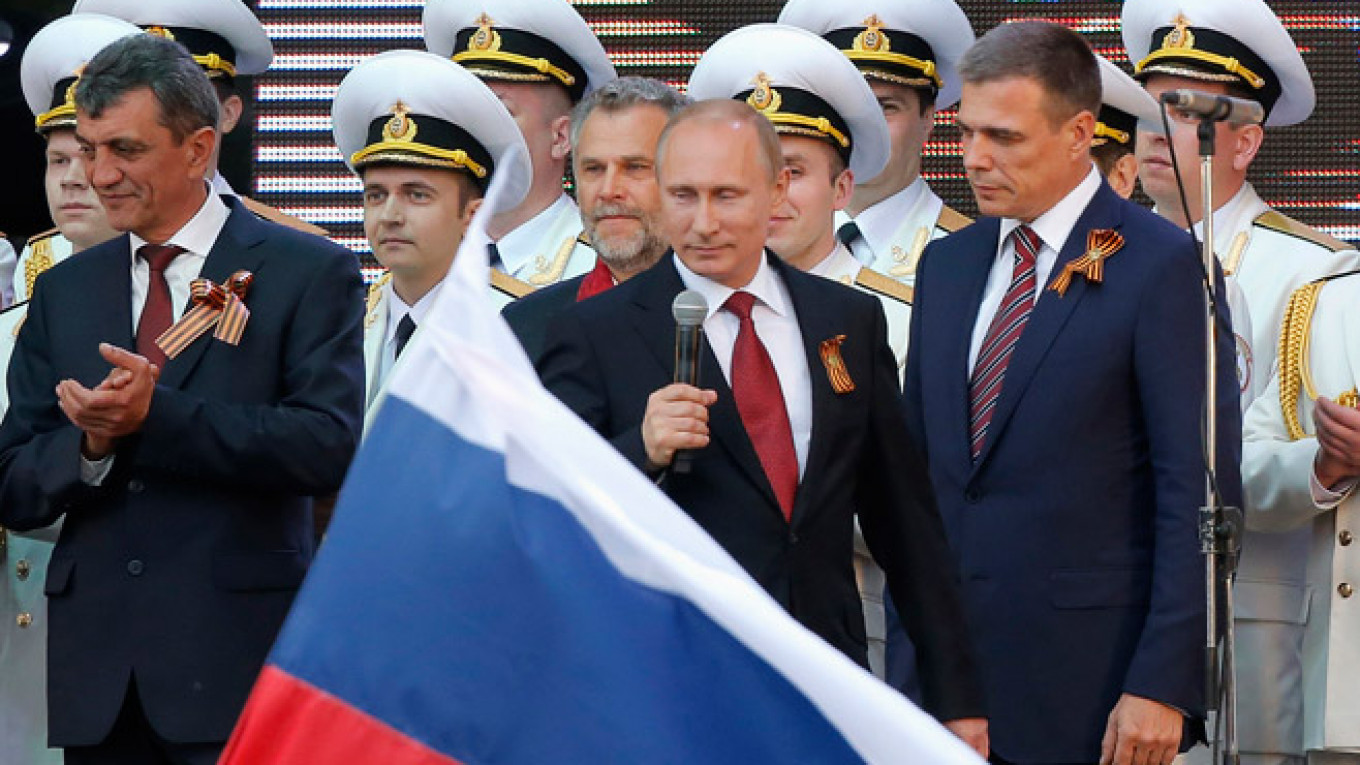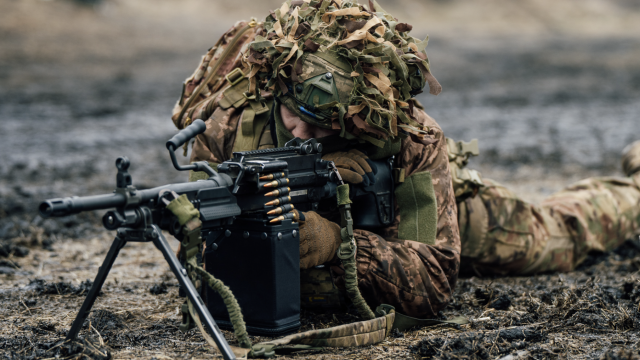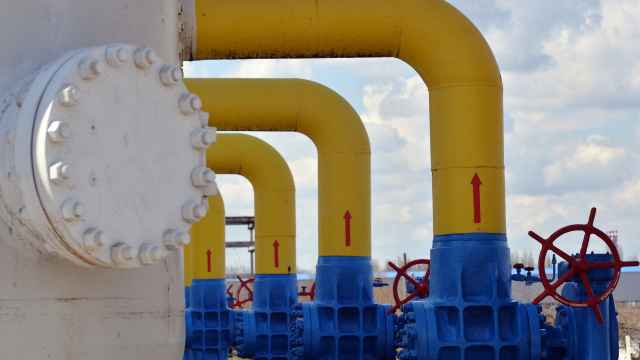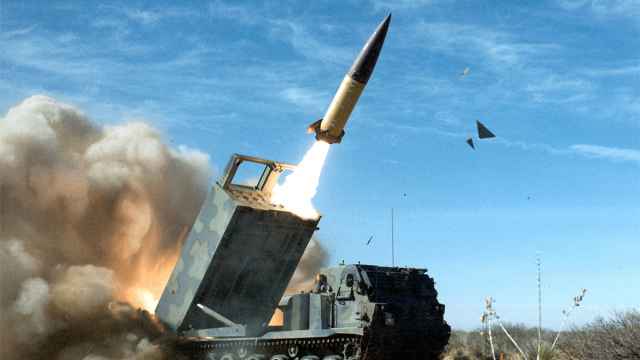When President Vladimir Putin paid a visit to Crimea during last week's Victory Day celebrations, he described March's annexation of the peninsula as an act of restoring "historical justness," and military analysts say Russia's famed Black Sea Fleet may play a crucial role in doing just that.
Apart from symbolic and historical significance, Russian sovereignty over Crimea may offer it new strategic opportunities and allow it to project its influence to the Mediterranean and further to the Middle East, as well as to the Indian Ocean via the Suez Canal, analysts said Tuesday.
To mark the 231st anniversary of the Black Sea Fleet on Tuesday, sailors, admirals and residents of Sevastopol laid flowers at the monument to Empress Catherine, during whose reign Crimea was absorbed by Russia before the fleet's founding in 1783. Sevastopol is usually portrayed as a prime example of Russia's military glory — a fact which Putin has made clear he hopes to reinvigorate going forward.
"In the near future, we are waiting in Sevastopol for six new Admiral Grigorovich-class frigates that are currently being built for us in Kaliningrad, six new submarines and also a Mistral assault ship from France," Alexander Vitko, commander of the Black Sea Fleet, said during the celebration.
Headquartered in Russia's famous naval base, Sevastopol, the Black Sea Fleet can get to the Mediterranean within one day of sailing, as opposed to the weeks it would take from the Northern Fleet's bases on the Kola. This ease of access allows Russia to exert influence over the Balkans, the eastern Mediterranean and the Middle East.
"The ships can get to the Bosporus overnight, then in a day they can pass the Turkish straits and appear in the eastern Mediterranean; two more days and the ships are near Cyprus, and in twelve more hours they are already approaching the Suez channel," Sergei Gorbachev, a long-time naval historian, said with clear admiration.
"If we had a modern fleet in place, there would have been no bombing of Yugoslavia in 1999 and Libya in 2011. The U.S. would have been more wary about going to Iraq," Gorbachev said by phone from Sevastopol.
Many members of the Russian government and pundits with ties to the Kremlin have expressed hopes that the annexation of Crimea — which is often dubbed an "unsinkable aircraft carrier" — will launch a new chapter in the Black Sea Fleet's illustrious history, but other analysts have warned that this may be wishful thinking.
"We have seen historically that if the U.S. is committed to an operation in the Mediterranean, it will do it and Russia will not have the resources to stop it. We have seen this even during the Cold War, when the best Russia could do was establish its influence in the eastern Mediterranean," said Dmitry Gorenburg, an associate at Harvard University's Center for Russian and Eurasian Studies.
"If Russia was a smaller country with the same economy, it would be easier, but it has to think about China in the Pacific and also the Arctic, so it cannot commit as much resources as it might want to," he said by phone from the U.S.
In January, Russia and China conducted joint naval training exercises in the Mediterranean, with ships from the Baltic, Northern and Black Sea fleets participating. In March 2013, Defense Minister Sergei Shoigu said Russia would create a permanent Mediterranean task force, a move which many experts at the time attributed to Russia's desire to protect war-torn Syria.
"Sevastopol bay has a much better climate, which would make it easier to attract contractors to the Navy," said Prokhor Tebin, an independent Navy analyst in Moscow.
"But we cannot say that military-strategic reasons were the main factor in Russia's decision to annex Crimea. On the contrary, the presence of the Black Sea Fleet made the peninsula avoid the scenario that is currently unfolding in southeast Ukraine," he said.
Contact the author at i.nechepurenko@imedia.ru
A Message from The Moscow Times:
Dear readers,
We are facing unprecedented challenges. Russia's Prosecutor General's Office has designated The Moscow Times as an "undesirable" organization, criminalizing our work and putting our staff at risk of prosecution. This follows our earlier unjust labeling as a "foreign agent."
These actions are direct attempts to silence independent journalism in Russia. The authorities claim our work "discredits the decisions of the Russian leadership." We see things differently: we strive to provide accurate, unbiased reporting on Russia.
We, the journalists of The Moscow Times, refuse to be silenced. But to continue our work, we need your help.
Your support, no matter how small, makes a world of difference. If you can, please support us monthly starting from just $2. It's quick to set up, and every contribution makes a significant impact.
By supporting The Moscow Times, you're defending open, independent journalism in the face of repression. Thank you for standing with us.
Remind me later.






